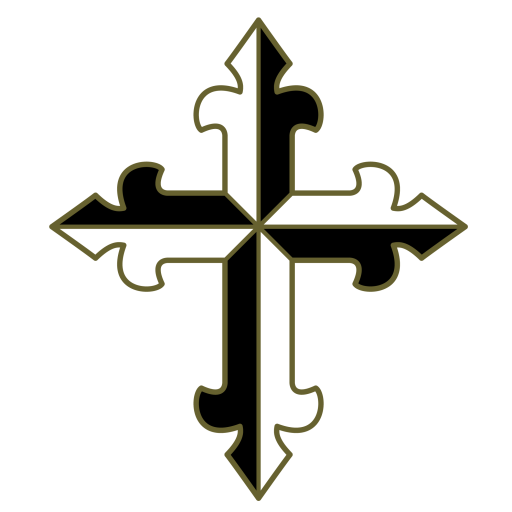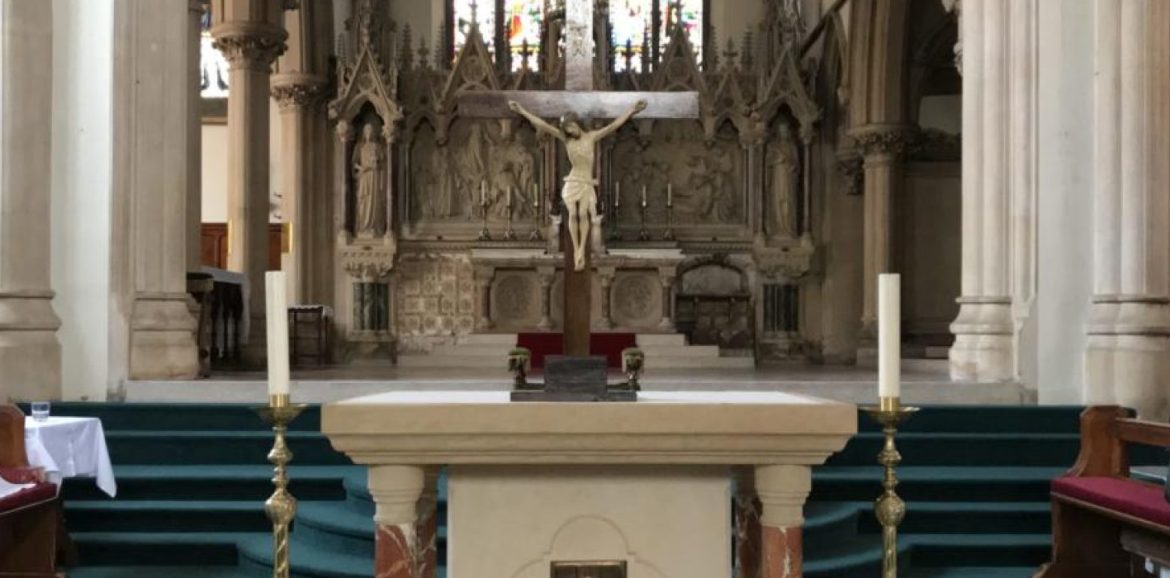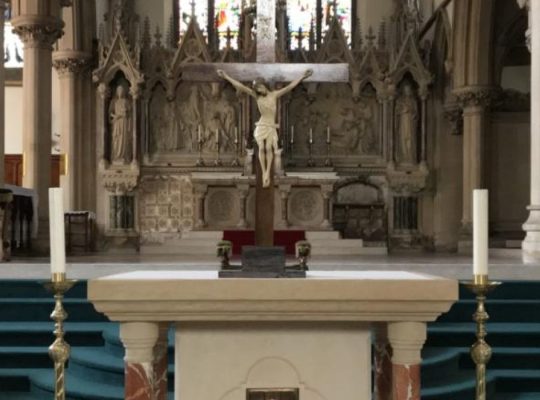Just a Thought
Today we celebrate the feast of two of the greatest apostles of the Church. One, Simon who became Peter, the rock, who denied Christ three times before his crucifixion, and yet was given the mission of the first Pope — the first among equals; and Saul who persecuted the Church and yet on the road to Damascus became Paul after an encounter with Christ and became the greatest missionary/evangelist.
Very soon after Pentecost, the Book of Acts tells us, the apostles got into difficulties with the religious authorities in Jerusalem. After the death of Jesus people had believed that all would return to order despite the enigma of the tomb found empty on the third day. Even though nothing had been officially clarified, the disappearance of the body of the crucified Christ seems not to have caused a problem; perhaps owing to the story spread by the Jewish authorities that the disciples had taken the body of Jesus. People would surely soon forget the explanation of a handful of his disciples who were talking about resurrection. However, when people began to foster this idea after witnessing the healing of a cripple, the authorities turned their attention to intimidation, which they were sure would be enough to silence the apostles. When this tactic failed and the apostles continued to rally people in great numbers, they were again arrested and thrown into prison to await their appearance in court the following day. But when the tribunal was ready to hear the case, it was discovered that the apostles had mysteriously disappeared from the dungeon. Again, they were found preaching in the Temple and brought back before the judges, but escaped being condemned to death through the intervention of Gamaliel. Instead, the authorities had to be content with having them beaten with rods and forbidding them henceforth to pronounce the name of Jesus. But the actions of a preacher of the new doctrine, the deacon Stephen, caused the authorities to proceed with greater vigour. In fact, the impact on the people of the “signs” and other wonders by this man with the Greek name aroused a violent reaction on the part of the members of the synagogue. Individuals were suborned to attest that he had spoken against Moses and against God: blasphemy, for which the punishment was death.
Stephen was stoned without trial and became the first martyr of the nascent Church. A violent persecution followed and led to the dispersal of the Jerusalem community, with the exception of the apostles. This exodus led to the gospel’s being preached outside the city, in Caesarea in Samaria, and even as far as Antioch, where a Christian community was formed. Those who stayed behind had only a brief respite, for their persecutors lost no time in pursuing the leaders of the community of Jerusalem.
“About that time King Herod laid hands upon some members of the Church to harm them. He had James, the brother of John killed by the sword, and when he saw that this was pleasing to the Jews he proceeded to arrest Peter also.”
There was a striking symmetry between the way in which our text refers to the execution of the first of the martyred apostles and the imprisonment of their leader, both at the initiative of Herod. But while James is only mentioned briefly in passing, one senses that the incarceration of Peter is going to be the subject of the whole story. The text says “about that time” — in other words, this episode takes place within the framework of the persecution that once again broke out against the apostles who remained in Jerusalem. The author does not specify the year in which these things took place. On the other hand, he notes carefully that it was during the week of Passover. The cruel treatment that Herod inflicted on the Church recalls the persecutions of the people of God at the hands of Pharaoh. But we should note that Peter was arrested at about the same time of the year as Jesus. Herod “intended to bring him before the people after Passover.” This public appearance presented a double advantage. It provided the king with an opportunity to prove his goodwill toward those whom he wished to win over; and at the same time the public nature of the trial and condemnation would intimidate the people. So Herod had Peter locked up under heavy guard: “four squads of four soldiers.”
“Peter thus was being kept in prison, but prayer by the Church was fervently being made to God on his behalf.” When “the kings of the earth rise up, and the princes conspire together against the Lord.”(Ps 2:2) The Christians, like the ancient Hebrews in Egypt, turn toward God. The Church appeals urgently to the Lord because it realizes that without him it has no way out of its tragic situation. But the Church is also the expression of deep and total trust: God never abandons his own, who can—and
must— trust in him to intervene; when and how, only he can decide in his own wisdom. In these cases, we do not tell him what he should do, what we think is the most important and the most urgent. We cry out to him, saying “Deign O God, to rescue me; O Lord, make haste to help me.” (Ps 70:2)
While the community kept a vigil of prayer, Peter, in prison, “was sleeping between two soldiers” too whom he was “secured by double chains.” How can we explain this deep and peaceful sleep of a prisoner the night before he is to appear publicly for judgement that he can only expect to be against him? Depending on our own particular temperament, we might be inclined to ascribe to Peter a remarkable psychological equilibrium, given his total lack of understandable anguish; or we might speak of his astonishing heedlessness or even of his being unaware of his own danger. The author of the passage certainly does not seek to describe Peter’s various inner states. His sound sleep corresponds to the attitude and conviction of the praying community: no matter how bad things look, we are in the hands of God and his providence, whatever happens, “we know that all things work for the good for those who love God, who are called according to his purpose.” In fact, his supreme intervention takes place without the slightest effort on Peter’s part: he is asleep. This is undoubtedly what the author intends to bring out.
“Suddenly the angel of the Lord stood by him.” A bright light illumined the cell. The angel awakened Peter and told him to get up “quickly.” Peter’s chains fell from his wrists. At the angel’s behest he put on his belt, his sandals, and his cloak, and followed the messenger. With him he passed through a first and then a second guard post. The iron gate opening on the city opened all by itself, still accompanied by the angel, he walked for a minute down the street. All this took place as if in a waking dream or a vision; Peter acted like a sleepwalker, capable of precise behaviour but somehow standing outside of himself. Suddenly outside, he regained his senses only for the angel to leave him. At that particular moment he finally realized what had happened: “Now I know for certain that [the] Lord has sent his angel and rescued me from the hand of Herod and from all that the Jews had been expecting.”
We now come to the second of our great apostles. The Second Letter to Timothy is the last that Saint Paul wrote. He is in Rome, a prisoner under humiliating conditions. He entertains no illusions as to the outcome of his trial: he will be condemned to death. We can still read today the last paragraphs of this moving letter addressed to his most faithful co-worker, in which the apostle looks rapidly over his life and speaks of his upcoming martyrdom.
“As for me, my life is already being poured away as a libation, and the time has come for me to be gone.” The two images that Saint Paul uses to evoke his death should hold our attention. The first has to do with the cult and must be seen in the light of what the apostle writes elsewhere, also in the same perspective of the cult. For him, a Christian life lived according to the gospel has the value of worship: “I urge you therefore, brothers, by the mercies of God, to offer your bodies as a living sacrifice, holy and pleasing to God, your spiritual worship.” This is why the exercise of the apostolate is, in itself and its objectives, a function of worship—we might even call it priestly. All the baptized are called to exercise it, as the apostles do in their special mission in the Church. Saint Paul writes: “…..I serve with my spirit in proclaiming the gospel……” And again “…… to be a minister of Christ Jesus to the Gentiles in performing the priestly service of the gospel of God, so that the offering up of the Gentiles may be acceptable, sanctified by the Holy Spirit.” And he also says: “But, even if I am poured out as a libation upon the sacrificial service e of your faith. I rejoice and share my joy with all of you. In the same way you also should rejoice and share your joy with me.” This offering to which he had long ago given his full consent is going to be expressed now in the libation of his blood, in the sacrifice of martyrdom.
Paul then goes on to describe his upcoming death as his “departure.” This second image must also have been familiar to him. He considers the death of every Christian as a passage, a Pasch, toward the homeland: “ Then we who are alive, who are left, will be caught up together with them in the clouds to meet the Lord in the air”, for Christ “died for us, so that whether we are awake or asleep we may live together with him.” From this point on “we would rather leave the body and go home to the Lord.” For this reason, Saint Paul was torn between wanting to join Christ as soon as possible and the duty of remaining to carry out the mission entrusted to him.”
“For to me life is Christ, and death is gain. If I go on living in the flesh, that means fruitful labour for me. And I do not know which I shall choose. I am caught between the two. I long to depart this life and be with Christ, [for] that is far better. Yet that I remain [in] the flesh is more necessary for your benefit.(Phil1:21-24) When he wrote these words, Saint Paul was adaptive, unsure of his fate. The Second Letter to Timothy is five or six years later than this. He is no longer wavering between what seems preferable or less preferable to him, for the time of departure has come. But the prisoner about to be martyred can, however, reflect briefly on his life work: “I have competed well; I have finished the race; I have kept the faith.”Victory in the last fight and at the end of the race is now assured: “From now on the crown of righteousness awaits me, which the Lord, the just judge, will award to me on that day, and not me only, but to all who have longed for his appearance.” After his persecution of the Church Paul became one of its greatest apostles. As for Peter his threefold confession of love for Christ seemed in some way to reconcile him to Christ whom he had denied three times. Now once again he can echo his profession of faith as at Caesarea Philippi: “You are the Christ the Son of the living God…….”
Peter and Paul, with their contrasting charisms put at the service of one and the same gospel, illustrate the nature of the Church of Christ and of the ministry entrusted to those whom the Lord chooses. Through the faith of which the apostles are witnesses and guides, the community of believers is solidly founded on Christ, “the cornerstone.” That nothing can dislodge. Whatever may happen, despite all the trials God delivers his friends as he freed his Christ from “the power of death.” Like their master the Lord, those who exercise their responsibilities / vocation in the Christian community have only one ambition to “stay the course” to remain faithful to their mission to be with Christ and gain the crown of glory.
“Lord, we give you thanks for these two great apostles. Amen.”


